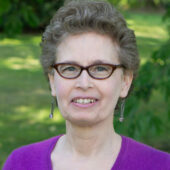Psychologist, MA, Registered Provisional Psychologist (AB), RP (ON), CT, CCC, CCTP
Trauma is often viewed as an “event” or “experience” like a terrible accident, abuse, a disaster, a death, etc. And it is a common view that the event or experience has to be considered “big” like these examples. And while such events and experiences can definitely be traumatic, other views expand on this, such as with the thinking that:
>Trauma is not an event or an experience as such, it’s what’s stored in the brain and the body. (There is a book called “The Body Keeps the Score” by Dr. Bessel Van Der Kolk describing this.)
>“Traumatic experiences” don’t have to be so “big”, and what is traumatic for you might not be traumatic for someone else, depending on things like if someone is more sensitive than someone else.
Also, sometimes events enacted, witnessed, or experienced can be impactful because they run counter to your sense of morality and ethics, and these can be difficult to recover from too.
While some people spontaneously recover from trauma over time with the love and support of family and friends, others may suffer from effects of lasting trauma, which can vary greatly from person to person but might include living with deep emotional pain, avoiding reminders of the event or experience, feeling depressed or nervous, feeling like the event is still happening, feeling very angry or guilty, having difficulty sleeping, judgments of self or others, or other effects, long after the actual experience has passed.
In these circumstances, the support, guidance, and assistance of a counsellor can often be helpful in lessening the impact of the event or events on your life in the here and now, such as by helping you find healthy ways to cope with the lingering effects of the trauma, though certainly the road can sometimes be difficult.
If you feel you are living with the effects of trauma and are wanting a more satisfying and values-directed life, I might be able to assist.







